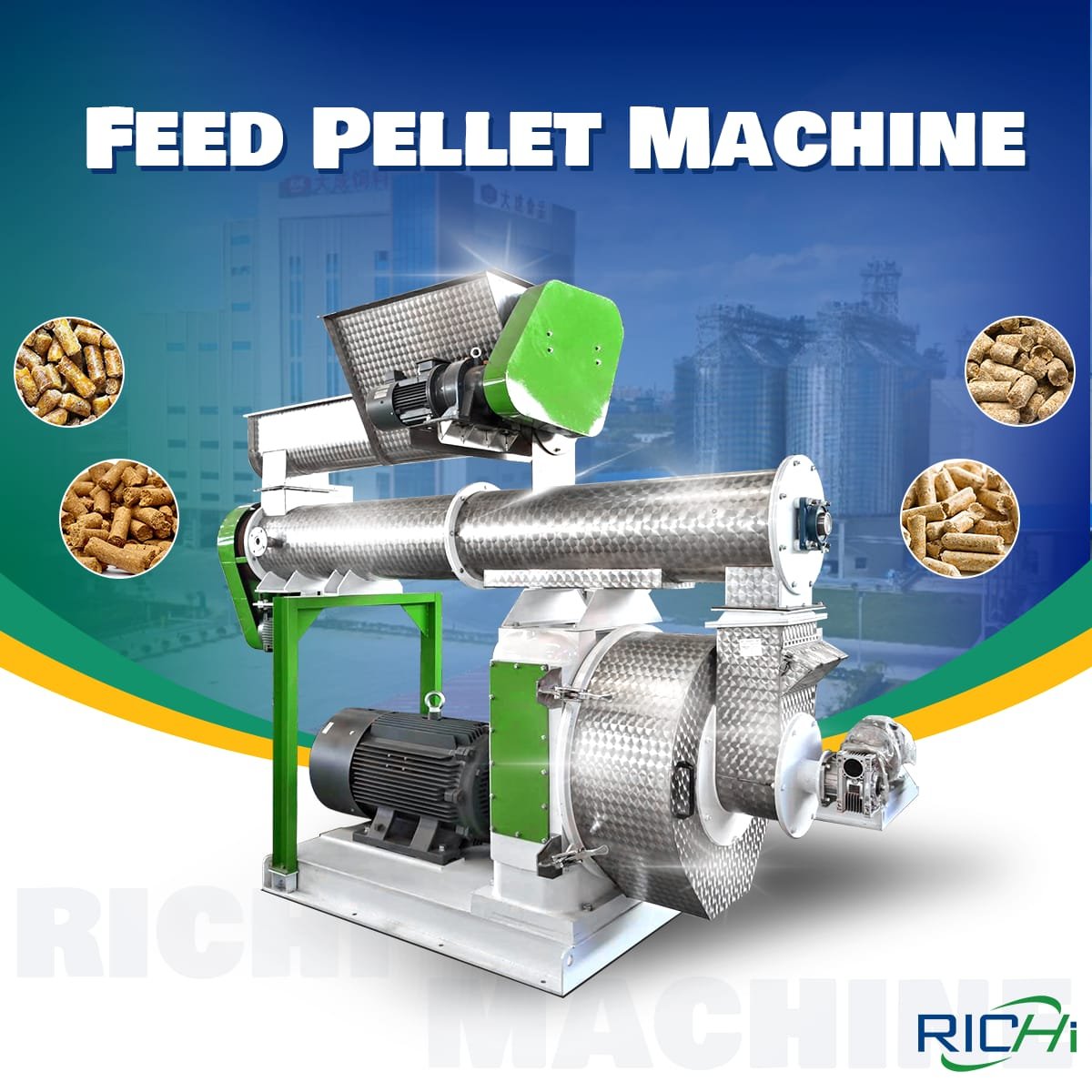Goat feed pellet making machines have become increasingly popular among farmers and feed manufacturers due to their efficiency in producing high-quality feed pellets. One of the most common questions potential buyers have is about the price range of these machines. This article explores the various factors that influence the cost of goat feed pellet making machines and provides an overview of the typical price ranges in the market.
Factors Influencing the Price
Several factors contribute to the wide range of prices for goat feed pellet making machines:
- Production Capacity: The output capacity of the machine is a primary factor in determining its price. Machines with higher production capacities generally cost more.
- Machine Type: There are two main types of pellet machines – flat die and ring die. Ring die machines are typically more expensive but offer higher production capacities.
- Power Source: Machines can be powered by electricity or diesel engines. Diesel-powered machines are often more expensive due to their portability and independence from electrical grid connections.
- Material Quality: Machines made with higher quality materials, such as stainless steel components, will be more expensive but offer better durability and longevity.
- Brand and Manufacturer: Well-known brands with established reputations often command higher prices due to perceived quality and reliability.
- Additional Features: Advanced features like automatic temperature control, digital displays, or remote operation capabilities can increase the price.
- Customization: Machines tailored to specific needs or integrated into larger production lines will typically cost more than standard models.
Related post: Sheep Feed Pellet Production Line
Price Ranges
Based on market trends, goat feed pellet making machines can be broadly categorized into the following price ranges:
Small-Scale Machines (50-500 kg/hour):
- Price Range: $200 – $6,000
- Details: Suitable for small farms or home use. A basic model with 100-150 kg/hour capacity might cost around $1,000 – $2,000.
Medium-Scale Machines (500-1000 kg/hour):
- Price Range: $5,000 – $20,000
- Details: Ideal for medium-sized farms or small commercial operations. A machine with 700-900 kg/hour capacity might be priced around $15,000 – $18,000.
Large-Scale Industrial Machines (1-5 tons/hour):
- Price Range: $15,000 – $100,000+
- Details: Suitable for large commercial feed production facilities. High-capacity machines (3-5 tons/hour) can cost $50,000 – $100,000 or more.
Complete Production Lines:
- Price Range: $100,000 – $800,000+
- Details: These include not just the pellet machine but also additional equipment like mixers, coolers, and packaging systems. A complete 3-5 ton/hour production line could cost around $160,000 – $200,000.
Specific Examples from Market Data
- Small, Home-Use Machine (50-80 kg/hour): Approximately $478 on some e-commerce platforms.
- Medium-Capacity Machines (200-400 kg/hour): Often priced between $5,800 and $6,000.
- High-Capacity Industrial Machines (1-2 tons/hour): Range from $15,000 to $18,500.
Additional Costs to Consider
When budgeting for a goat feed pellet making machine, it’s important to factor in additional costs:
- Shipping and Installation: Depending on the size of the machine and your location, shipping and installation costs can add significantly to the total investment.
- Maintenance and Spare Parts: Regular maintenance and occasional part replacements should be factored into the long-term cost.
- Energy Costs: Consider the ongoing electricity or fuel costs to operate the machine.
- Training: Some manufacturers offer training for operators, which may come at an additional cost.
- Accessories and Auxiliary Equipment: Additional equipment like coolers, screeners, or packaging machines may be necessary depending on your production needs.
Making the Right Choice
When selecting a goat feed pellet making machine, it’s crucial to balance your budget with your production needs:
- Assess Your Needs: Consider both current production requirements and potential future expansion.
- Analyze Raw Materials: Ensure the machine is optimized for the types of raw materials you plan to use.
- Consider Maintenance and Support: Customized machines may require specialized maintenance. Ensure that proper support is available.
- Evaluate ROI: Calculate the return on investment, considering both the initial cost and long-term operational benefits.
- Consult Experts: Work closely with manufacturers or agricultural consultants to determine the best configuration for your specific needs.
Conclusion
The price range for goat feed pellet making machines is vast, ranging from a few hundred dollars for small, basic models to hundreds of thousands for large-scale industrial systems. The right choice depends on your specific needs, production scale, and budget. While it may be tempting to opt for the cheapest option, investing in a quality machine that meets your production needs can lead to better long-term value and efficiency in your goat feed production process.
As with any significant investment, it’s advisable to get quotes from multiple suppliers, compare specifications carefully, and consider both immediate and long-term costs before making a decision. By carefully weighing these factors, you can find a goat feed pellet making machine that offers the best balance of price and performance for your specific requirements.
